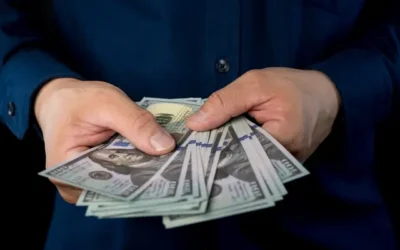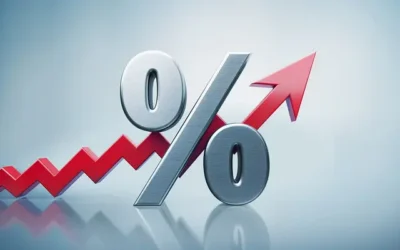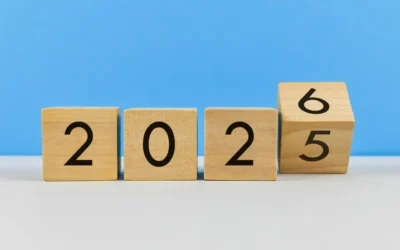
Rising mortgage rates affect VA borrowers by increasing monthly payments, reducing buying power, complicating refinancing decisions, and intensifying competition for limited listings. Even with $0 down and no PMI, higher rates and prices challenge affordability. Veterans can respond by tightening budgets, exploring buydowns, comparing lenders, and planning for a later IRRRL when payment history and market conditions align.
Quick Facts
- Higher interest rates increase monthly principal-and-interest, requiring careful budgeting and contingency planning.
- Buying power drops as rates rise, often pushing shoppers toward smaller homes or different locations.
- VA loans still avoid PMI, but funding fees and closing costs remain important affordability factors.
- IRRRL can simplify rate reduction later, but lenders’ overlays and net-benefit rules still apply.
- Temporary and permanent buydowns can manage payments; seller contributions count toward concession limits.
Mini FAQ
How do rising rates change my VA payment?
Even small rate increases can add noticeable dollars to monthly principal-and-interest. Your total payment may also change with taxes and insurance, so budget using a full estimate, not just the payment shown for principal and interest on disclosures.
Does a VA loan still help when rates are high?
Yes. VA loans typically require no down payment and don’t require private mortgage insurance, which can offset part of the hit from higher rates. You’ll still evaluate funding fees, closing costs, and whether a buydown or discount points improve affordability.
Can I refinance later if rates fall?
Often. The VA IRRRL is designed to streamline VA‑to‑VA refinances when the new terms provide a clear benefit, such as a lower rate or payment. Lender overlays vary, so compare options and timing against your goals and expected time in the home.
Key Takeaways
- Rising rates lift monthly payments and directly reduce maximum affordable loan amounts.
- VA loans still avoid PMI, helping offset higher interest costs in many scenarios.
- IRRRLs can cut rates later when markets improve and payment history is strong.
- Residual income and DTI matter more as rates increase and budgets tighten.
- Temporary or permanent buydowns can manage payments within VA concession limits.
- Shop multiple lenders; pricing, overlays, and buydown policies vary meaningfully.
How do rising mortgage rates affect VA borrowers’ monthly payments?
They raise principal-and-interest and total payments. As rates climb, the principal-and-interest portion increases, and total monthly outlay can also rise with taxes and insurance. VA borrowers should budget using comprehensive estimates and compare scenarios before locking terms. Guidance on rate impacts and comparisons is available from federal consumer resources. CFPB: Explore Rates.
- Principal-and-interest grows with higher rates even when the loan amount stays constant, so the same home price can require a larger monthly payment than before rate increases occurred.
- Escrowed items such as taxes and insurance can change annually, meaning the total payment may move independently of the note rate; plan for realistic cushion in your monthly budget.
- Rate‑sensitive affordability often changes quickly; obtain updated loan estimates from multiple VA‑approved lenders on the same day to compare like‑for‑like pricing and total monthly cost.
- Price several scenarios at different rates and loan amounts to understand how a quarter‑point change affects monthly principal‑and‑interest and total payment with escrowed items included.
- Verify whether your quoted payment includes property taxes and homeowner’s insurance; if not, ask for an estimate to avoid under‑budgeting during underwriting and closing.
- Review updated offers after any market move or credit change; compare APR, points, and lender credits to understand the full cost beyond the note rate alone.
Do higher rates reduce a Veteran’s buying power—and by how much?
Yes—buying power declines as rates rise. For the same monthly target, a higher rate supports a smaller loan. The effect is mechanical and can be significant over long amortizations. Federal tools illustrate how rate shifts change affordability and cost over time. CFPB: Explore Rates.
- When rates increase, more of each payment goes to interest in early years, reducing the principal you can finance while staying within a chosen monthly budget threshold.
- VA’s $0‑down structure helps some buyers qualify despite higher rates, but the underlying math still reduces the maximum affordable price as rates move up.
- Buyers often respond by expanding search areas, adjusting property type, or prioritizing homes with lower taxes or HOA dues to keep all‑in costs within budget.
- Set a firm monthly payment comfort level, then request lender scenarios that vary only the rate and purchase price to see the buying power change clearly.
- Include taxes, insurance, and any HOA fees in each scenario; a low rate paired with high fixed charges might still exceed your budget constraints.
- Revisit preapproval if markets shift; an updated quote ensures your search criteria reflect current buying power and underwriting reality.
Do higher rates make VA refinances harder—and when does an IRRRL help?
Yes, higher rates complicate refinances; IRRRLs help when they lower cost. If rates rise, many refinances stall. When markets improve—or payments stabilize—an IRRRL can reduce rate or payment without a full re‑underwrite, subject to lender overlays and program rules. Review official IRRRL guidance. VA IRRRL · VA Handbook Ch. 6.
- IRRRLs are VA‑to‑VA refinances intended to deliver a clear benefit, such as a lower rate or more stable payment structure, often with streamlined documentation compared to new purchase loans.
- Lenders may still apply overlays, like seasoning or payment‑history expectations, and will analyze costs and recoupment to ensure the refinance makes demonstrable sense for the borrower.
- Cash‑out refinances are different and more sensitive to rate levels and equity; they generally require fuller underwriting and may not pencil when rates are elevated.
- Confirm you meet IRRRL criteria and that the new payment or terms provide a net tangible benefit consistent with program intent and your time horizon in the home.
- Request quotes from multiple VA lenders on the same day; small pricing differences can materially change breakeven and long‑term savings.
- Compare total costs, consider whether to finance fees, and check lender overlays before deciding on timing, especially if rates appear volatile.
Does a VA loan still help affordability when rates are high?
Often, yes—because there’s no PMI and limited costs. VA loans generally require no private mortgage insurance, which can offset higher interest costs. You’ll still evaluate the VA funding fee and allowable closing charges as part of total affordability. See official VA cost guidance. VA: Funding Fee & Costs.
- Eliminating monthly PMI can meaningfully improve affordability compared with many low‑down conventional options, especially when rates increase across products.
- VA restricts which fees a Veteran may pay and limits certain seller‑paid concessions, shaping how closing costs and buydown funds can be structured in competitive markets.
- Financing the funding fee can preserve cash at closing; evaluate the tradeoff between upfront savings and slightly higher monthly payments over time.
- Ask lenders to show total monthly payments with and without monthly mortgage insurance to highlight VA’s structural advantage in higher‑rate environments.
- Model scenarios with different down payments and fee‑finance choices to see which option keeps cash reserves adequate after closing.
- Coordinate with your agent and lender on allowable seller credits so the offer structure supports affordability without exceeding VA limits.
How do residual income and DTI interact with higher rates in VA underwriting?
Residual income is primary; DTI is a flag. VA underwriting emphasizes meeting (and ideally exceeding) regional residual‑income benchmarks. A total DTI above about 41% requires justification but can be offset when residual income is strong and compensating factors are present. See VA underwriting guidance. VA Handbook Ch. 4.
- As rates rise, principal‑and‑interest grows, pushing DTI higher; strong residual income can still support approval if the file demonstrates capacity and stable employment.
- VA notes that residual income may justify approval above the 41% ratio benchmark, particularly when residual exceeds guideline amounts by a meaningful margin.
- Underwriters weigh compensating factors—reserves, verified rent history, conservative credit use—more heavily when rates increase and ratios stretch the budget.
- Calculate residual income early using your family size and region; aim to exceed the table to provide cushion against rising non‑mortgage expenses.
- Reduce revolving balances and defer new debts before applying; improved ratios and more residual income provide flexibility as rates fluctuate.
- Document stable employment and income continuity; clean housing payment history strengthens the case when DTI edges higher due to prevailing rates.
Can temporary or permanent buydowns help Veterans manage payments?
Yes, when structured within VA rules. Temporary buydowns reduce the effective payment for a set period; permanent buydowns (discount points) lower the note rate for the life of the loan. VA explains temporary buydowns and addresses how seller‑provided funds are treated. VA: Temporary Buydowns · VA Handbook Ch. 7.
- Temporary buydown funds from sellers or builders are treated as concessions and must fit within VA concession limits; they reduce early‑year payments but not the underlying note rate.
- Permanent buydowns via discount points lower the note rate for the entire term; evaluate breakeven by dividing the upfront cost by monthly savings and comparing with your time horizon.
- Lenders’ overlays differ on buydown structures, documentation, and pricing; always confirm how funds are sourced and disclosed to avoid issues at underwriting or closing.
- Decide whether you need early‑year payment relief (temporary) or long‑term rate reduction (permanent), then ask for side‑by‑side cost and breakeven comparisons.
- Verify that any seller‑paid buydown fits within VA’s concession rules, and that disclosures clearly show escrowed buydown funds and payment schedules.
- Stress‑test the payment at the full note rate for temporary buydowns to ensure future affordability once the subsidy ends.
| Feature | Temporary Buydown | Permanent Buydown (Discount Points) |
|---|---|---|
| Effect on Note Rate | No change to note rate; payment reduced temporarily | Lowers note rate for entire loan term |
| Typical Use | Cash‑flow relief in early years; market incentives from sellers/builders | Longer‑term savings when you’ll keep the loan long enough to break even |
| Source of Funds | Often seller/builder credits; treated as concessions under VA rules | Paid by borrower (or credits), priced by lender |
| Risk to Budget | Payment steps up each year; plan for higher future payment | Higher upfront cost; less benefit if you refinance or sell early |
| Underwriting Considerations | Must comply with VA guidance and concession limits | Evaluate points versus savings; lender overlays vary |
What strategies help Veterans compete in a high‑rate market?
Lead with preparation and flexibility. Tighten budgets, strengthen credit, gather complete documentation, and consider broader search areas. Work with a VA‑savvy lender and agent to structure offers using allowable credits or buydowns while preserving reserves and meeting VA guidelines. For negotiation basics, see VA’s buyer guidance. VA Buyer’s Guide.
- Request multiple quotes the same day and compare rate, points, credits, and total monthly payment; small pricing differences can translate into meaningful lifetime savings.
- Consider temporary buydowns or targeted points to improve affordability; ensure any seller‑paid support stays within VA concession limits and appears correctly on disclosures.
- Stay flexible on property type, size, and location; lower taxes or HOA dues can preserve buying power when rates are elevated across all loan products and lenders.
- Document stable income, clean housing payments, and adequate reserves; these compensating strengths matter more when rate pressure tightens ratios and margins.
- Coordinate early with your agent and lender on allowable credits and offer structure so your bid remains competitive without undermining closing compliance.
- Set a personal “walk‑away” payment limit before shopping; let this number, not list prices, drive your decisions and negotiations.
How should Veterans budget for taxes, insurance, and maintenance when rates rise?
Budget for escrow changes and upkeep. Total payments typically include principal, interest, taxes, and insurance, and escrowed amounts can change over time. Regulations and federal guidance explain how escrow works and why totals may adjust annually. CFPB: Escrow Accounts.
- Higher home prices can increase property taxes and insurance premiums, raising the escrow portion of your payment even if interest rates stabilize or decline later.
- Annual escrow analyses may reveal shortages or surpluses; servicers adjust monthly escrow accordingly, which changes your total monthly payment for the next year.
- Budget for routine maintenance and unexpected repairs; strong reserves help absorb costs without jeopardizing mortgage performance during periods of rate volatility.
- Review closing disclosures to understand initial escrow setup, then read each annual escrow analysis to anticipate how taxes or insurance will affect next year’s payment.
- Track local tax assessments and insurance renewals; if premiums rise, plan early so the new escrow requirement doesn’t stretch your budget unexpectedly.
- Maintain a separate household reserve fund for repairs and deductibles; this cushion supports payment stability when other costs fluctuate.
Does the VA set interest rates, or do lenders set them?
Lenders set rates; VA does not. VA backs the loan but doesn’t determine your interest rate or points. Pricing varies by lender, market conditions, and file specifics. The VA explains program costs and confirms lenders determine rate and discount‑point terms. VA: Funding Fee & Costs.
- Different lenders price loans differently on the same day; comparison shopping is essential, especially when rates are moving quickly and buydown options differ.
- Points can reduce the rate but require upfront cash; evaluate breakeven carefully, particularly if you may sell or refinance sooner than expected.
- Credit profile, loan features, and lock period affect pricing; ask each lender to hold terms long enough to close without expensive extensions.
- Request standardized quotes from at least three VA lenders on the same day with identical assumptions to compare apples to apples.
- Ask about lock lengths, extension costs, and float‑down policies; clarify whether your quoted rate is locked and for how long.
- Reprice after any material change in income, debts, or appraisal; such changes can alter pricing even when market rates are flat.
What should Veterans know about locking rates in volatile markets?
Locks protect you from increases during the lock period. A rate lock holds your rate for a set time, subject to application changes; extensions may cost money. Federal consumer guidance explains how locks work and why timing matters during market swings. CFPB: Rate Locks.
- Locks typically come in set periods and may have fees for extensions; if closing is delayed, ask about costs and whether a re‑lock or float‑down is possible.
- Even with a lock, changes in your application—loan type, appraisal value, verified income—can alter pricing, so keep documentation consistent from application to closing.
- Unlocked rates can change at any time; volatile periods may warrant locking sooner once you’re ready to proceed with a complete and accurate file.
- Confirm whether your rate is locked on the loan estimate, note the expiration, and plan milestones to avoid extension fees.
- Ask lenders to show pricing for multiple lock lengths so you can weigh timing risk against additional cost for longer protection.
- Stay in close contact with your lender and agent to keep inspections, title work, and underwriting milestones on schedule under the lock timeline.
The Bottom Line
Rising mortgage rates present real challenges for Veterans using VA loans, reducing buying power and raising monthly payments. Yet the VA program still offers meaningful advantages—no down payment, no PMI, and flexible underwriting. Veterans can stay competitive by budgeting strategically, comparing multiple lenders, considering buydowns, and exploring the IRRRL when rates fall. Strong residual income, disciplined credit habits, and readiness to act when opportunities emerge will keep homeownership goals attainable even in higher-rate environments.
Citations Used
Frequently Asked Questions
How do rising mortgage rates affect my VA loan payment?
Higher rates increase principal‑and‑interest, raising your monthly payment. Your total payment can also change with taxes and insurance, so budget using a complete estimate rather than principal‑and‑interest alone.
Do higher rates reduce VA buying power?
Yes. For a fixed monthly target, a higher interest rate supports a smaller loan amount. Many buyers adjust price range, location, or property type to keep total payments affordable.
Does the VA set my interest rate?
No. Private lenders set rates and points based on market conditions and your profile. VA backs the loan but doesn’t price the note rate or discount points for your transaction.
Can a temporary buydown help in the first years?
Often. Temporary buydowns lower the effective payment for a limited period, then step up to the full note rate. Ensure funds comply with VA concession limits and that you can afford post‑buydown payments.
Should I pay points to reduce my VA rate?
Points can lower the note rate for the loan’s life. Weigh the upfront cost against monthly savings and your expected time in the home to determine breakeven and suitability.
Can I refinance later with an IRRRL if rates drop?
Yes. A VA IRRRL can streamline VA‑to‑VA refinancing when the new loan provides a clear benefit, such as a lower rate or payment. Lender overlays vary, so compare offers.
Do rising rates change the VA funding fee?
No. Funding‑fee percentages are set by law and program guidance. Rates may influence your strategy, but the fee depends on loan type, usage, and down payment—not market rates.
How should I budget when rates are high?
Plan for total monthly costs, including taxes, insurance, and potential HOA fees. Maintain a reserve for maintenance and consider buydowns or points if they fit your timeframe and budget.
Will higher rates make sellers prefer non‑VA offers?
Sometimes. In competitive markets, sellers may favor higher offers or faster timelines. A complete, well‑structured VA offer with allowable credits and strong documentation remains highly competitive.
When should I lock my rate?
Lock when your file is complete enough to close within the lock period. Ask about lock lengths, extension costs, and float‑down options in case markets improve before closing.

Levi Rodgers is the Founder of VA Loan Network, a leading resource for Veteran homebuyer education. A Retired Green Beret and Broker-Owner of LRG Realty in San Antonio, Levi leverages his military discipline and real-world real estate expertise to provide Veterans with expert loan advice, guidance, and trusted financial leadership.








